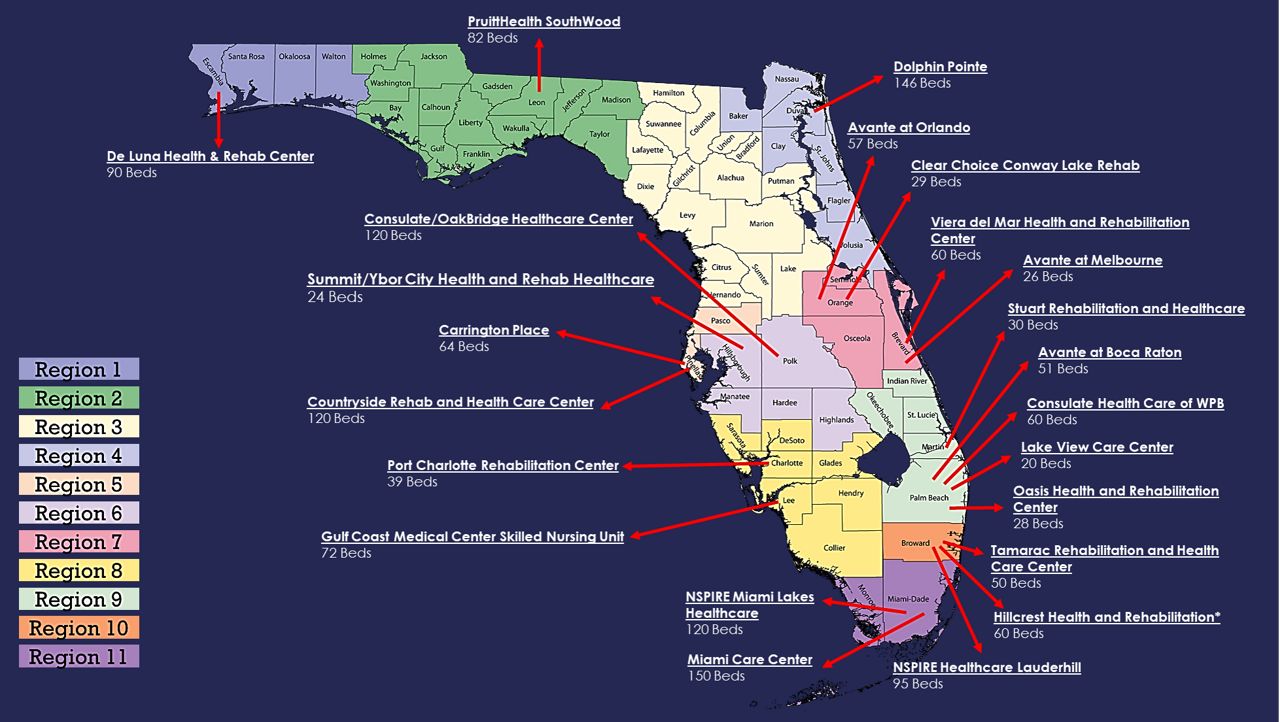ORLANDO, Fla. — Davonne Irion remembers the exact time she received a call from her father’s long-term-care facility, letting her know he was on his way to a hospital. It was 12:45 a.m. on Father’s Day.
What You Need To Know
- 23 nursing homes designated as Florida COVID-19 isolation centers
- 6 on nursing home watch list; some have below average ratings from Medicare
- AHCA says they undergo "enhanced oversight"
A hospital nurse later told her they tested her father for COVID-19.
“A few seconds went by, and she said he’s tested positive and that was one of the hardest things I’ve had to digest. I could no longer talk,” Irion said.
Her father died nine days later. Irion's husband was there with her, camera in hand, when she stood outside the hospice care facility her father was transferred to from the hospital.
It would be the last time Irion would see her father.
Irion eventually filed a complaint with Florida's Agency for Health Care Administration.
Carrington Place of St. Petersburg, where her father lived, is one of 23 Florida long-term care facilities with designated COVID-19 isolation centers.
Coronavirus isolation centers are areas within designated nursing homes where a COVID-19 patient can recover. Some families say they had no idea their loved one's long-term care facility had one of these centers, and they’re now calling on the state to end this practice.
This comes as Gov. Ron DeSantis announced limited re-opening of long-term care facilities to visitors, months after closing them to minimize the spread of the coronavirus.
We dug into the histories of all 23 facilities with isolation centers and found that six are currently on the state’s nursing home "Watch List." According to the AHCA’s, website, “The Watch List identifies nursing homes that are operating under bankruptcy protection or the facility did not meet or correct upon follow-up... minimum standards at the time of an inspection.”
AHCA records also show some facilities haven’t been inspected in months.
Six of those facilities had “below average ratings” with Medicare, while Medicare described five as “too new to rate.”
While Irion doesn’t know exactly how her father contracted COVID-19, she does know he contracted it inside the facility, which is why she’s pushing for change.
“I’d love to see all these facilities become COVID-exclusive. I don’t think mixing the facilities is a good idea,” Irion said.
DeSantis, however, says the isolation centers protect residents.
While these centers are actually part of a long-term care facility, an AHCA spokesperson says, “Residents with COVID-19 must be cared for in an area of a facility that is entirely separate from non-COVID-19 residents.”
“I don’t feel like that’s best practices for sure,” Irion said.

Nancy Niles, the department chair of health professions at Rollins College, shares her concern.
“You have staff that may be working at other facilities elsewhere, so there’s cross-contamination there, and also, there may be delays in testing — when you test staff. They may be asymptomatic,” Niles said.
The AHCA also said all facilities were vetted before being approved and said they undergo "enhanced oversight" and "daily communication," but did not explain further.
For Irion, she just doesn’t want others to suffer her same pain of losing a loved one.
According to an AHCA spokesperson, the state reimburses each designated facility, including an additional payment per day for Medicaid recipients.
In a written statement to Spectrum News 13, Carrington Place in St. Petersburg, where Irion's father stayed, said all residents and responsible parties were made aware of the designated COVID unit, but it declined to detail the safety measures in place at that unit.



